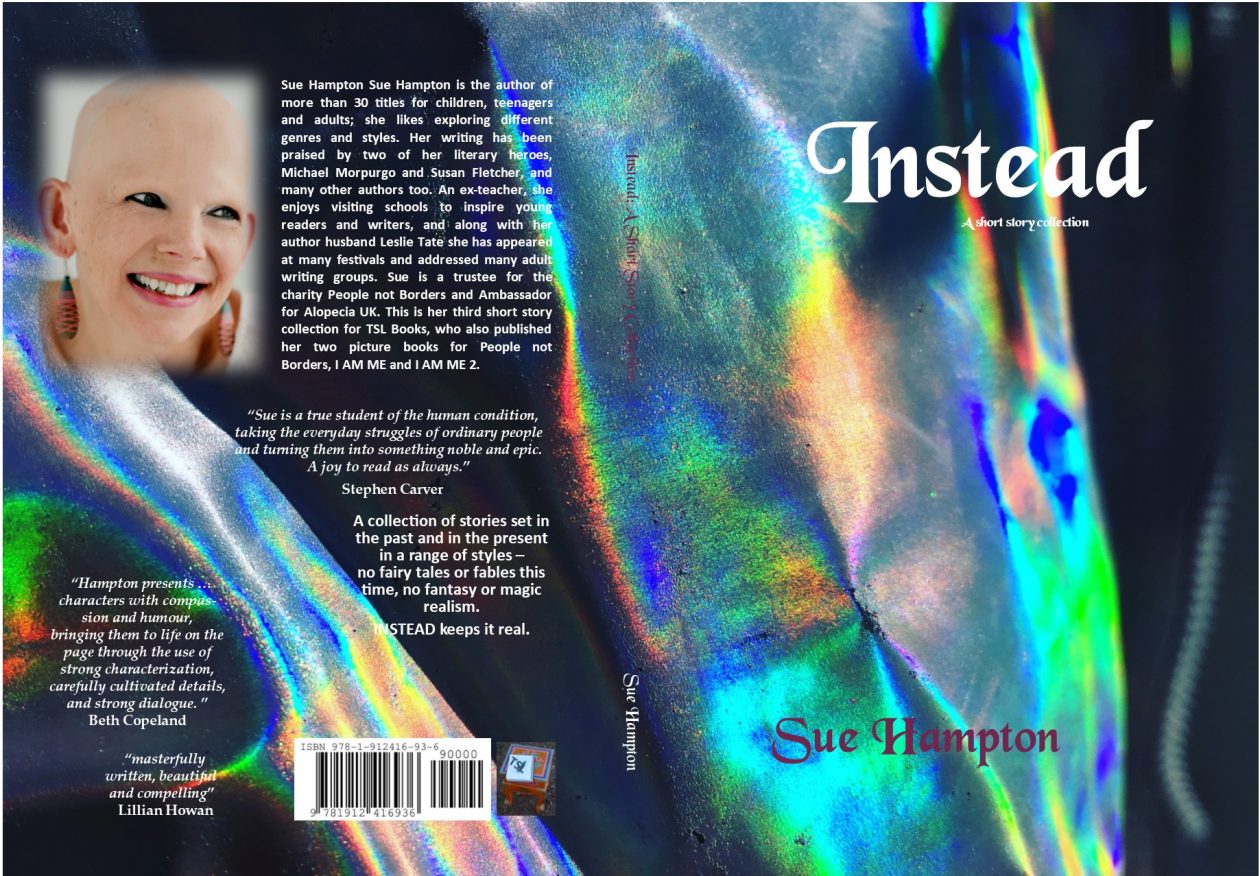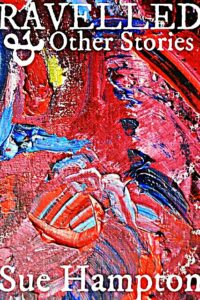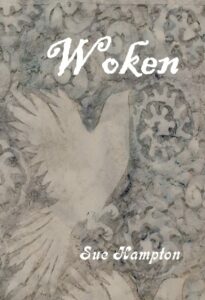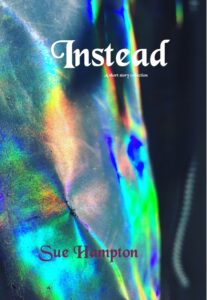
JULIA LEE BARCLAY-MORTON – YOGA, WATER AND REWRITING AUTISM
I interviewed writer Julia Lee Barclay-Morton about her experience of autism. Julia began as an experimental dramatist in New York, moving to the UK to

I interviewed radical author Sue Hampton, about her new collection of short stories, Instead. With titles for adults and children, Sue is a prolific storyteller. Instead is her third collection. It follows Ravelled and Woken, making a total of 29 short stories Sue has brought out with TSL Publications.
Leslie: Firstly, a declaration of interest, as I’m interviewing my wife! Having said that, can I ask you, Sue, what’s the attraction of the short form?
Sue: For years I didn’t read short stories or consider writing them. Then I read Margaret Atwood’s Wilderness Tips and while I didn’t enjoy all her stories equally, I appreciated them. One of them, Isis in Darkness, seemed to me to do everything a great novel can do: compelling characterisation, time sweep, memorable scenes and important themes. I had always assumed that depth would be sacrificed and characters sketchy. That short stories must involve a twist, a simple unique selling point or a brief time frame. That they’d be for the writer a kind of exercise and for the reader a less than profound emotional experience. Once I learned better I was excited, read more collections and determined to explore all possibilities. I was hooked! And I found that ideas as starting points kept coming.
 Leslie: How are your three collections different and what do they have in common?
Leslie: How are your three collections different and what do they have in common?
Sue: With Ravelled I chose diversity, aiming to show how varied short stories can be in style and form. So there is a twist, a story spanning ten minutes, a fairy tale and a fable, and the settings are contemporary and historical. I use first person narrative and third, and different registers from the poetic to the lean. I had read collections that seemed to me monotone and I wanted to do the opposite.
 Woken is largely contemporary, the humour is darker and the contexts more political on the whole. My first setting is a Friends of the Earth Basecamp and the last is the Women’s March on London. But in between there’s still some fantasy and stylistic variation and it’s all about love in different forms. Someone said this collection is more mature and challenging but it’s a reflection of my own increasing commitment to change in the real world. Because the stories in Instead were written during the nine months leading up to the birth of my grandson, the connecting theme is babies and everything they bring and mean, through romantic love, sex, infidelity and parenthood, adoption and infertility. I suppose that’s another way of saying they’re about birth as well as death. And always love.
Woken is largely contemporary, the humour is darker and the contexts more political on the whole. My first setting is a Friends of the Earth Basecamp and the last is the Women’s March on London. But in between there’s still some fantasy and stylistic variation and it’s all about love in different forms. Someone said this collection is more mature and challenging but it’s a reflection of my own increasing commitment to change in the real world. Because the stories in Instead were written during the nine months leading up to the birth of my grandson, the connecting theme is babies and everything they bring and mean, through romantic love, sex, infidelity and parenthood, adoption and infertility. I suppose that’s another way of saying they’re about birth as well as death. And always love.
Leslie: Is there one key story that characterises Instead or is more important to you than the others?
Sue: The Activist was emotional to write because Lily is close in some ways to me and where I am at this point in my life when activism on the page is not enough. I’ve protested many, many times in the last few years; I’ve stood outside the Saudi Embassy. I think writing the story deepened my commitment to peace and to climate action. Since I wrote it I’ve been arrested with Extinction Rebellion at Waterloo Bridge. I hope it captures the desperation that can go with the conviction. The other story that springs to mind is A Different Faith, because it moved me, and explores love – and faith – in a way that readers may find surprising and possibly disturbing.
Leslie: Reviewers tend to say your characters are your strength. How are the characters in Instead different and do you create or present them in different ways?
Sue: Two of my central characters, including a girl in nineteenth century Paris, are minors and another is over seventy, which means I need a range of vocabularies and attitudes. I’m drawn to complex individuals who don’t fit society’s expectations in one way or another and there are a few of those here, from the boy who hangs out with the girls who confide in him to the woman transitioning in The Haircut, but there are others trying to conform, and some who only seem to be succeeding. Characters do tend to land in my imagination almost fully-formed in the sense that I see and hear them. Then as I write I get to know them better and that’s thrilling. I can’t force them onto particular paths they won’t walk so I let them be themselves and see where that takes the story. My most mysterious character, Nazareth, is the exception. I kept changing my mind about who he is and his impact in the story wasn’t planned, so he doesn’t have an inner voice. In some stories I switch perspective, which is quite challenging in a short story, but creates contrast and breadth and imitates life more authentically – but in others the narrative is shaped by just one protagonist, whether told in first or third person, for a more intense immersion in one point of view. A reader said it’s obvious that I really love my characters even when they don’t share my values and that’s true, I do.
Leslie: For a reader of short stories, what do you think sets yours apart in Instead?
Sue: I suppose if they’re distinctive it’s because of that love I feel for these imaginary people. Many writers I’ve read keep a critical or sardonic distance from theirs and that’s not for me. I want emotional involvement and that means human connection. I imagine that in spite of the different styles I adopt, and the influence in particular stories of Susan Fletcher, Michèle Roberts and Marilynne Robinson, there’s a Sue Hampton-ness about them. These stories were written just before the sixth IPCC report, Greta Thunberg’s school strike, the launch of Extinction Rebellion and Attenborough’s Climate Change: the Facts, but I knew the terrible truth and while my characters mostly behave as if they don’t, I think there’s a deep vulnerability, a hope that feels fragile, underpinning these narratives. A sadness. But I hope they’re also full of spirit, warmth and humanity.
The stories in Instead are reviewed within the book by some of the authors Sue respects, including Lillian Howan and Emma Claire Sweeney. This is what another, Stephen Carver, says about them:
 ‘I love reading Sue’s short fiction. There is a richness and depth that is so often absent from the flash and dash contemporary writing. This is another bitter-sweet and beautifully crafted story, which draws you in immediately and keeps you guessing until the final line. It’s such a fluent read, as well, that you barely notice how subtle and complex the narrative. Like many of Sue’s stories, this is also a character study, and as ever her insight into the inner workings of not only her protagonist but the people around him is positively uncanny. Sue is a true student of the human condition, taking the everyday struggles of ordinary people and turning them into something noble and epic. A joy to read as always. I wish I could write like this.’
‘I love reading Sue’s short fiction. There is a richness and depth that is so often absent from the flash and dash contemporary writing. This is another bitter-sweet and beautifully crafted story, which draws you in immediately and keeps you guessing until the final line. It’s such a fluent read, as well, that you barely notice how subtle and complex the narrative. Like many of Sue’s stories, this is also a character study, and as ever her insight into the inner workings of not only her protagonist but the people around him is positively uncanny. Sue is a true student of the human condition, taking the everyday struggles of ordinary people and turning them into something noble and epic. A joy to read as always. I wish I could write like this.’
– Stephen Carver, Head of Online Courses at the Unthank School of Writing, reader/mentor for The Literary Consultancy, freelance editor and cultural historian, author of Shark Alley: The Memoirs of a Penny-a-Liner and The 19th Century Underworld, Norwich, UK
On Monday radical actor, playwright and director Polly Wiseman talks about her work with her company Fireraisers that produces ‘extraordinary theatre in unexpected places’.
ABOUT LESLIE TATE’S BOOKS:

I interviewed writer Julia Lee Barclay-Morton about her experience of autism. Julia began as an experimental dramatist in New York, moving to the UK to

I interviewed Gillean McDougall from Glasgow, who edited the collaborative projects Honest Error (on Charles Rennie Mackintosh and his wife Margaret Macdonald) and Writing the

I interviewed French writer Delphine de Vigan, whose book, No et moi, won the prestigious Prix des libraires. Other books of hers have won a clutch

I interviewed Joanne Limburg whose poetry collection Feminismo was shortlisted for the Forward Prize for Best First Collection; another collection, Paraphernalia, was a Poetry Book Society Recommendation. Joanne

I interviewed Katherine Magnoli about The Adventures of KatGirl, her book about a wheelchair heroine, and Katherine’s journey from low self-esteem into authorial/radio success and
| Cookie | Duration | Description |
|---|---|---|
| cookielawinfo-checkbox-analytics | 11 months | This cookie is set by GDPR Cookie Consent plugin. The cookie is used to store the user consent for the cookies in the category "Analytics". |
| cookielawinfo-checkbox-functional | 11 months | The cookie is set by GDPR cookie consent to record the user consent for the cookies in the category "Functional". |
| cookielawinfo-checkbox-necessary | 11 months | This cookie is set by GDPR Cookie Consent plugin. The cookies is used to store the user consent for the cookies in the category "Necessary". |
| cookielawinfo-checkbox-others | 11 months | This cookie is set by GDPR Cookie Consent plugin. The cookie is used to store the user consent for the cookies in the category "Other. |
| cookielawinfo-checkbox-performance | 11 months | This cookie is set by GDPR Cookie Consent plugin. The cookie is used to store the user consent for the cookies in the category "Performance". |
| viewed_cookie_policy | 11 months | The cookie is set by the GDPR Cookie Consent plugin and is used to store whether or not user has consented to the use of cookies. It does not store any personal data. |
7 responses
Sue’s latest book of short stories sounds fascinating, Leslie. I am also very interested in the climate crisis and the changes that are necessary to save our planet before we make ourselves extinct.
Thanks, Robbie. I’m lucky to be married to Sue!
Sue’s stories never disappoint! Lovely interview, you guys!
Thank you, Robin. 🙂 🙂 🙂
I am so excited to read a fresh batch of Sue Hampton short stories! She’s rapidly become one of my favorite authors in the medium, delivering vividly wrought, soaring and/or gut-wrenching tales and characters so real they linger around the reader even after the book is closed and shelved. And it won’t stay shelved long. Like short-form masters from John Cheever, Eudora Welty and Flannery O’Connor to Joe Hill, Scott Snyder and George Evans, Sue Hampton’s is a singular storytelling voice of timeless universal beauty. Bring it on, Sue! xo
Wow, that some write up! Thank you so much, Rick. 🙂 🙂 🙂
Wow, thank you, Rick. I hope you enjoy this third collection as much as the other two. Cockles of heart well warmed by this generous comment. x